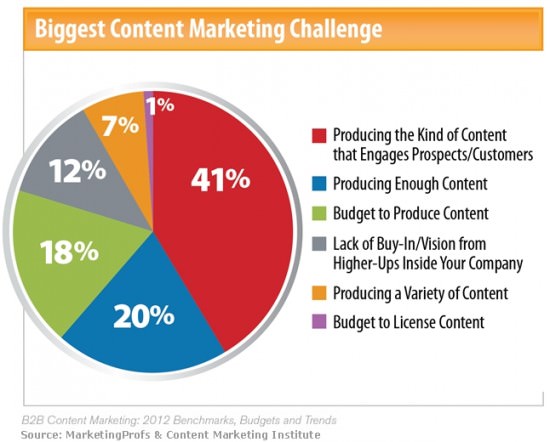Customer over corporate-led communications
We're currently hiring at First 10. A friend asked me what kind of roles we're looking to fill. My response was, "two brand journalists". She was puzzled, "do you mean PRs", she said? "...aren't there loads of people in marketing who can write?" My response: "Not really, it's a different blend of skill-sets and a totally different motivation."
I embraced the whole idea of "brand journalism" via a book by David Meerman-Scott, I read 3-4 years ago, it's made increasing sense since. The way a journalist approaches an article is simply different from the way that somebody who is good at writing approaches an article. A brand journalist works inside the company across all content formats, writing and producing videos, blog posts, photos, webinars, articles, e-books and podcasts. It's about producing the content that is relevant to, that engages prospects and customers, which is something that Marketing Profs recently highlighted was the major content marketing challenge for B2B marketers:

Cut the sales talk
Brand journalists will communicate brand value by uncovering the stories about the live brand and how your customers are using its products, services and experiences. Not what the products and services are and how they work. Not the brand itself. What its history is, how to use it, how special it is… blah, blah, blah. That's called "advertising." And, on its own (maybe at all), that doesn't work any more.
Quality content "written for me" is marketing in a human, accessible way that sparks reactions, or conversation. It is not the technical ability to write a press release, sales copy, generate clever strap lines, to run a media relations campaign or organise a product launch, for example.
How do brand journalists tell brand stories that resonate?
A brand journalists brings an editorial approach to building a brand. So, here's what I thought about after my conversation, hopefully it it's of some use if your recruiting someone similar 🙂 :
1. An audience first mentality
Journalists naturally put the needs of the consuming audience (vs. that of the company) first. That serves a brand's needs far better - the content that they create is customer-driven vs. product or service-driven.
Their training means that every time they sit down to write they actually believe deep down, "Nobody has to read this". Do you think people in advertising think that? The opposite is true! That kind of pressure on content-creation benefits your brand. It's 'right side up' messaging.
2. They can keep it simple
Marketers, sales people and management tend to make things complicated, at least in the first instance. Me included. We're more often oriented around a mix of product or service messaging, briefs, sales problem, commercial issues or objectives, so seeing the wood from the trees is not always easy whilst there's blinding sales pressures. Journalists however, make the complex more easily understood, it's what they do. They assume the reader has a low attention span, knows nothing, is not stupid and have little time on their hands.
3. They can sniff out the value
Journalists believe that there’s always a story or an angle, somewhere. So run-of-the-mill tech products, professional services firms or any undifferentiated brands can be made relevant by the way that the journalist frames a perspective - remembering the values, beliefs and world-view (a Seth Godin term, I love it) of the audience.
4. They tell the truth
I write this point with a wry smile given the News Of The World / phone hacking scandals here in the UK. Though, given that's "big business" wanting to sell more newspapers, I choose to believe that journalists are still schooled in serious research, in backing up opinions with facts and that ideas are fairly referenced against their sources. This code of ethics enhances brand values, builds trust - providing a base for genuine thought leadership.
5. Their purpose is to enhance brand credibility
A “brand journalist” is a twist on conventional journalism since by definition it's never truly impartial. The journalist is employed after all, so cannot really turn against the company, easily at least. It's the meaning behind the name “brand journalist” that matters to me, the idea raised by David Meerman-Scott. It's the intent behind employing such person that speaks volumes about a brand. It's clear what the role does and doesn’t do. It describes a new wave of marketing.







